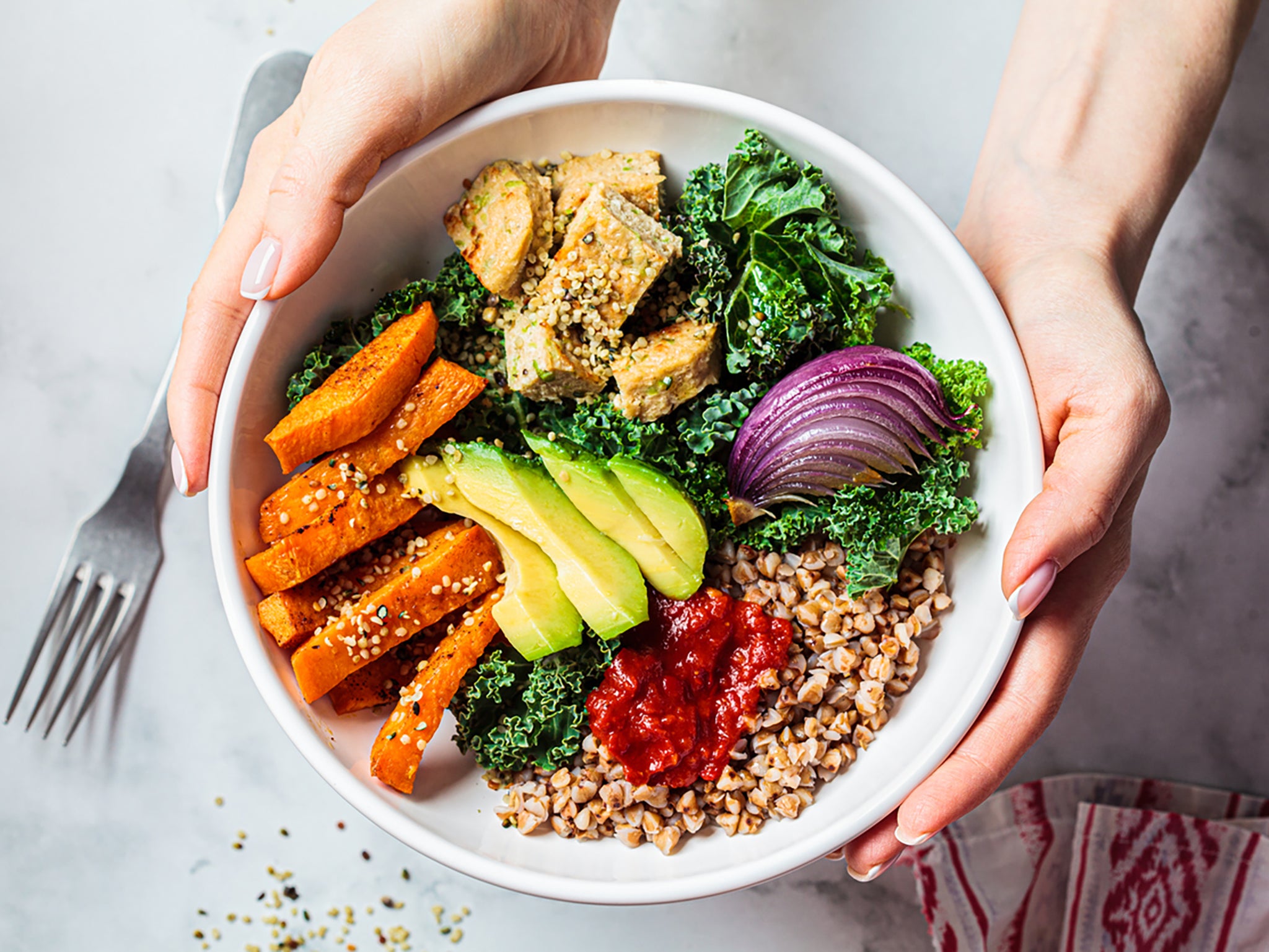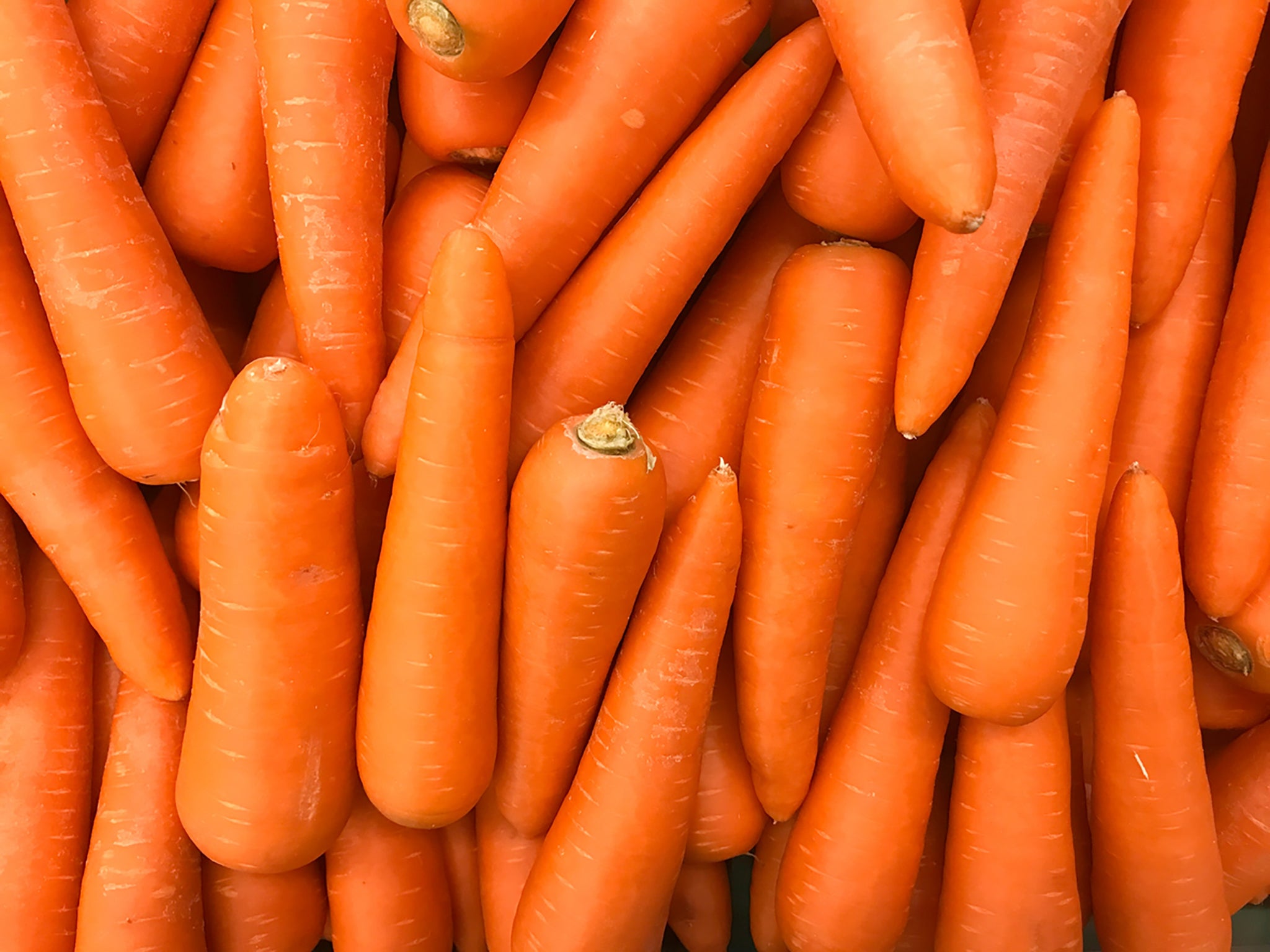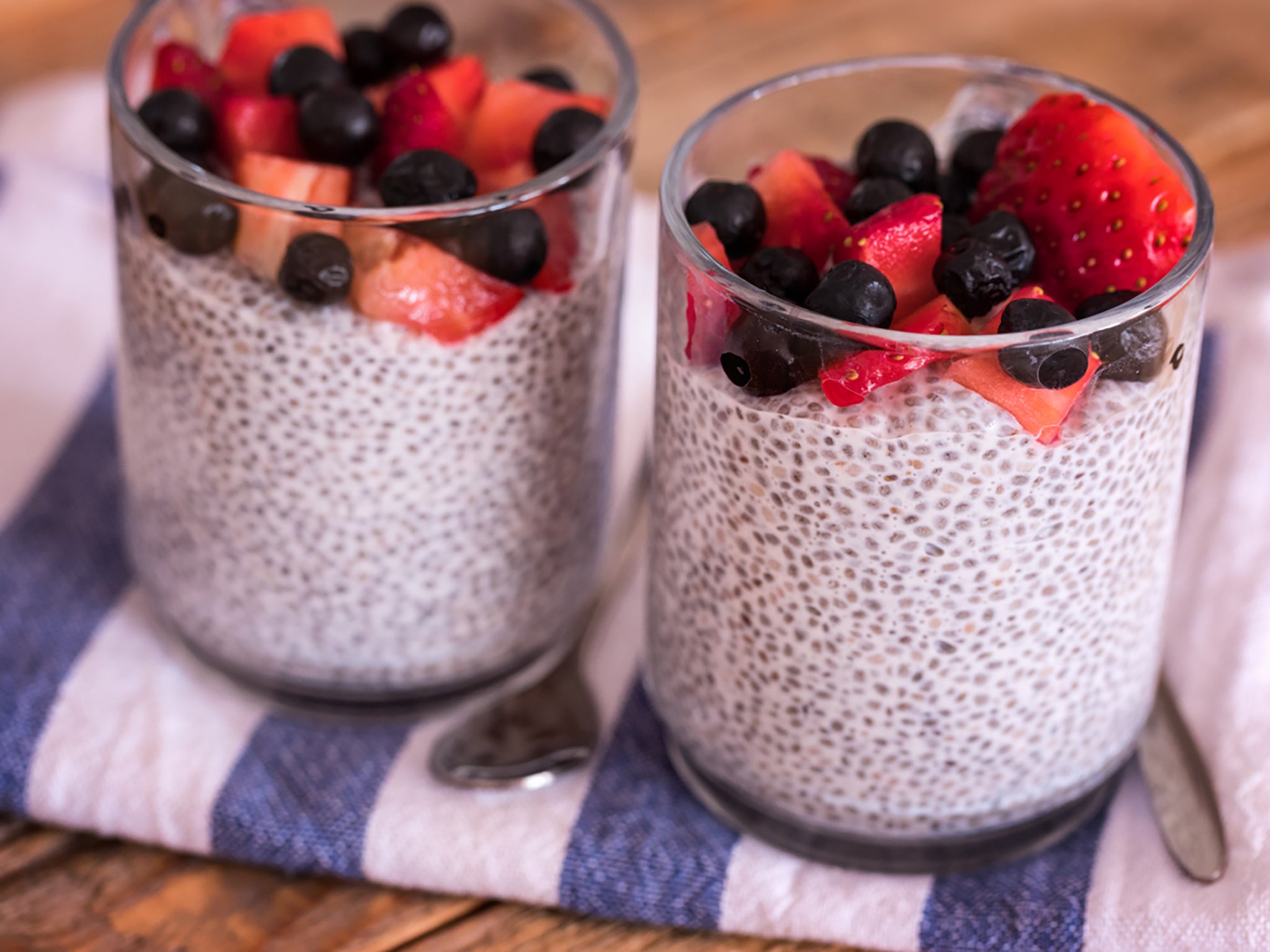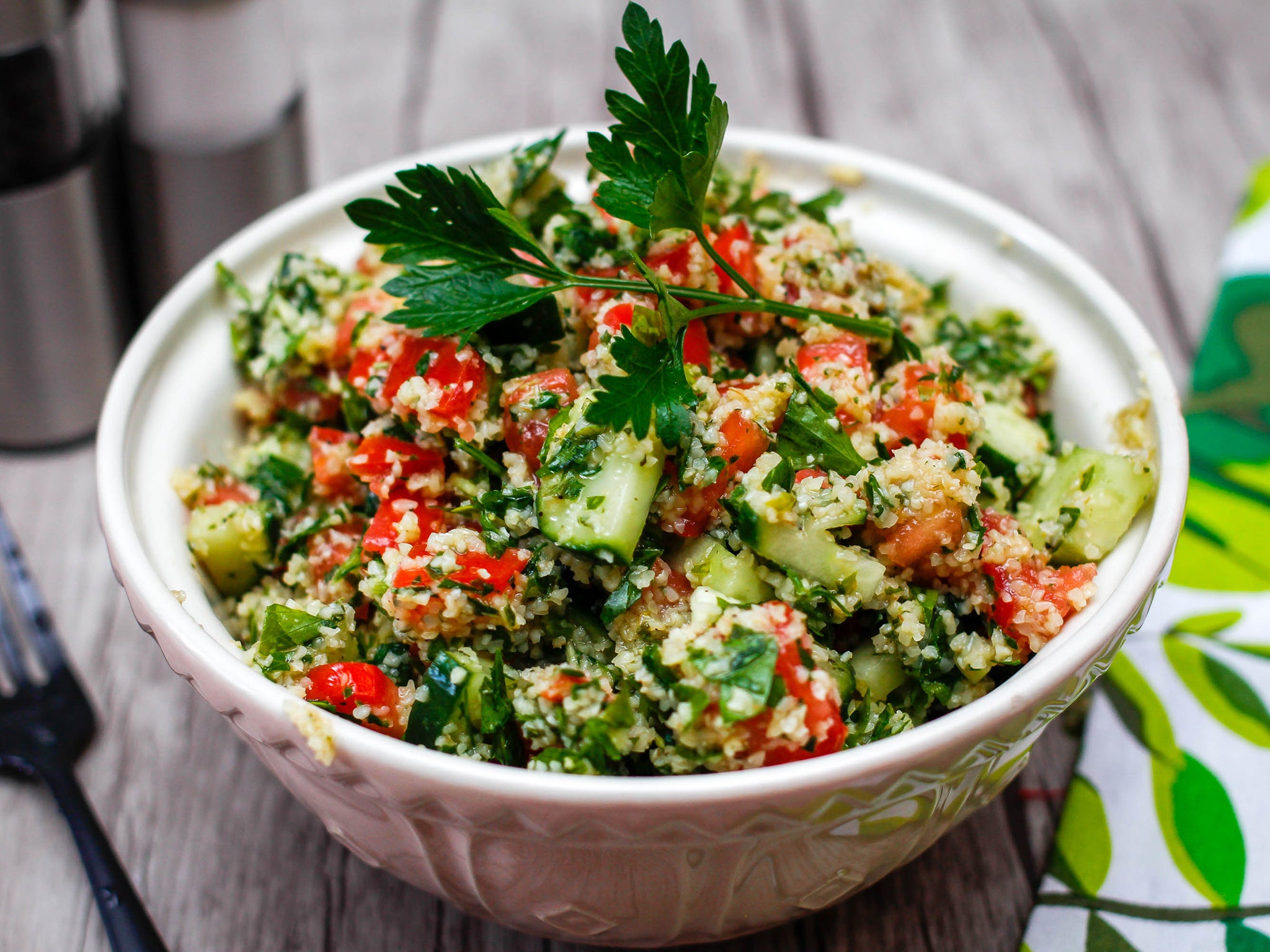The Independent's journalism is supported by our readers. When you purchase through links on our site, we may earn commission.
The six ingredients you need to eat every day for good gut health, according to nutritionists
We are told that we need to be eating at least 30 different plants a week for optimal gut health. But, asks Hannah Twiggs, are some plants more effective than others? Here, some top nutritionists tell her what they swear by and share some of the best recipes for maintaining a healthy gut


Awareness of the link between our gut health and other aspects of our wellbeing is growing every day. With over 187 million videos on TikTok, the trend for #guthealth has turned into a veritable movement whereby there is a seemingly unrelenting desire to discover new ways to nurture the perfect biome for our physical and mental health.
At the forefront of this movement is Dr Tim Spector, professor of genetic epidemiology at King’s College London, who has led the recommendation that we should all be eating at least 30 different plants a week for optimal gut health. Research for the American and British Gut Projects of 11,000 people’s eating habits showed those who ate 30 or more different plants per week had more diverse gut microbiomes than those who ate 10 or fewer. But as all plants aren’t built the same – are there some things we should be eating more regularly for maximum benefit?
When nutritionists start overhauling their own regimes and placing good gut health as a core element, you know it’s a trend to start taking seriously. Following such a diet serves three main premises: digestion, obviously, but also absorption of essential nutrients used elsewhere in our bodies, and elimination of toxins and bad bacteria to keep the whole system running smoothly.
Rachel Aceso, a naturopathic nutritional therapist, is a big advocate for this. She says that a healthy gut is essential for more than just digestion. It’s also crucial for “assimilating foods and essential nutrients needed for the functioning of our bodies”. Our gut also plays a vital role in waste elimination, which is crucial for preventing toxin buildup. Essentially, a healthy gut significantly influences our immune system, helping our bodies fight off illnesses. “Good gut health is also essential for balanced hormones, good energy levels and our overall happiness,” she adds.
Helena Barham, another nutritionist, agrees and says that our diet has a profound impact on the gut microbiota – the community of trillions of bacteria, viruses and fungi residing in our digestive system. According to Barham, these microorganisms have a massive influence on our overall health.
“What we eat can have a huge impact on the microbiota, which in turn has a huge impact on our overall health,” she explains. “If we eat certain things that promote undesirable bacteria, this can make us more susceptible to obesity or inflammatory bowel diseases.” Conversely, eating foods that support beneficial bacteria can significantly improve our health, underscoring the importance of mindful food choices.
Dr Hana Patel, an NHS GP, says that to avoid issues like constipation, heartburn and IBS, it’s crucial to eat the right foods, particularly those high in fibre. Many people in the UK don’t consume enough fibre, which is essential for digestion. Fibre can be obtained from wholemeal bread, brown rice, fruits and vegetables and beans.
Patel also recommends:
- Eating a wide range of plant-based foods to support a diverse community of gut microbes
- Increasing fibre intake, as it feeds healthy bacteria
- Avoiding highly processed foods that can disrupt the balance of gut bacteria
- Including probiotic foods like live yoghurt to encourage the growth of beneficial microbes
- Using extra-virgin olive oil for its microbe-friendly polyphenols
All agree that embracing gut health could lead to improved digestion, a stronger immune system, better mental health and a happier, more energetic life. It’s a holistic approach that offers benefits far beyond what we see in the mirror, making it a trend that’s both scientifically sound and personally rewarding.
Six ingredients to add to everyday meals for a healthy gut
While social media might make gut health seem like a minefield, Aceso says it’s easier than you might think. Adding just six ingredients to your everyday meals, many of which you likely have already can have a massive impact on your gut health.
Here are the key ingredients and their benefits:
Carrots

Carrots are rich in fibre and antioxidants, which support a healthy gut environment by promoting the growth of beneficial bacteria and protecting against harmful microbes.
Kefir
This fermented drink is packed with beneficial bacteria and yeast, which help maintain a balanced microbiota and improve digestion.
Sauerkraut
Fermented cabbage like sauerkraut is an excellent source of probiotics and fibre, aiding in digestion and enhancing gut health by introducing and nurturing good bacteria.
Bone broth
Bone broth is a nutrient-dense option that supports gut health due to its high content of collagen and amino acids, which help repair and maintain the gut lining.
Bananas
Bananas provide prebiotic fibre, which serves as food for beneficial gut bacteria, promoting their growth and enhancing overall gut health.
Chia seeds
Chia seeds are high in fibre, which aids in digestion and helps maintain a healthy digestive tract by supporting regular bowel movements and feeding good gut bacteria.
A day’s worth of recipes for good gut health
To make it easier to incorporate these ingredients into your diet, Aceso has shared some delicious and simple recipes for breakfast, lunch and dinner that will keep your gut happy.
Breakfast
Kefir chia seed pudding

This tasty, easy breakfast is a perfect grab-and-go option for those busy mornings when you still want nourishment. This is a great option for gut health due to the high fibre and omega-3 content in the chia seeds and flaxseeds, which helps to promote healthy digestion. The berries add antioxidants and vitamins, while kefir provides plenty of the all-important gut-supportive probiotics.
Ingredients:
3 tbsp chia seeds
1 cup kefir
½ tsp vanilla extract
1 tbsp maple syrup or raw honey (optional for added sweetness)
½ cup mixed berries (such as blueberries and raspberries)
Small handful of almonds or walnuts, chopped (for added flavour and omega-3 fatty acids)
½ tsp ground flaxseeds (for extra fibre and anti-inflammatory benefits)
Method:
1. In a bowl, mix the chia seeds, kefir and vanilla extract. If you prefer a sweeter breakfast, add the maple syrup or raw honey now.
2. Stir well, then let it sit for 5 minutes. Stir again to ensure all chia seeds are separated, then cover and refrigerate overnight. The chia seeds will absorb the liquid.
3. In the morning, stir the chia seed pudding well and add a little more kefir if the consistency is too thick.
4. Top the pudding with fresh berries, chopped nuts, and a sprinkle of ground flaxseeds for an extra nutritional boost. Enjoy chilled.
Lunch
Buddha bowl
Barham suggests creating a buddha bowl for lunch or dinner, which can be easily meal-prepped and enjoyed as a balanced, gut-loving weekday meal. “Think quarter of the plate being a whole grain, half the plate being veggies and a quarter plate being protein such as meat, fish, egg, and then add a dressing for extra flavour,” she says.
Ingredients:
3 tbsp cannellini beans (or other tinned or jarred beans)
Handful of salad leaves
Couple of slices of radishes
Handful of halved cherry tomatoes
Few slices of cucumber
60g tinned sardines (or any other lean protein)
1 tbsp salsa verde
Sunflower or pumpkin seeds
Method:
1. In a bowl, combine all the ingredients except the seeds and the salsa verde.
2. Mix together before topping with the salsa verde and a sprinkle of sunflower seeds.
Tip: This recipe is very flexible, so swap out the ingredients each time, replacing with other veggies like carrots, diced avocado, or celery. For protein, choose anything between shredded roast chicken, prawns, or white fish.
Dinner
Quinoa tabbouleh salad

This quinoa salad is a refreshing and nourishing option for a gut-friendly lunch or dinner. Quinoa is a great source of complete protein and fibre and when cooked with bone broth, holds a lot of gut healing goodness. The cucumbers and tomatoes add a refreshing crunch, whilst the fresh herbs and lemon dressing not only bring vibrant flavours but also have soothing properties for the digestive system.
Ingredients:
200g quinoa
500ml chicken bone broth
1 cucumber, diced
2 medium tomatoes, deseeded and diced
4 spring onions, finely sliced
Large bunch of fresh parsley, finely chopped
Small bunch of fresh mint, finely chopped
Juice of 1 lemon
3 tbsp olive oil
Salt and freshly ground black pepper, to taste
Method:
1. Rinse the quinoa under cold running water to remove its bitter coating. In a medium saucepan, combine the rinsed quinoa and broth. Bring to a boil, then reduce the heat to low, cover, and simmer for 15 minutes, or until the liquid is absorbed and the quinoa is tender. Remove from heat and let it sit covered for 5 minutes. Run a fork through it and allow it to cool to room temperature.
2. In a large mixing bowl, combine the cooled quinoa, diced cucumber, tomatoes, spring onions, parsley, and mint.
3. In a small bowl, whisk together the lemon juice, olive oil, salt, and pepper.
4. Pour the dressing over the salad and toss well to combine. Adjust seasoning to taste.
5. Refrigerate until ready to serve. This salad can be packed into airtight containers and kept in the fridge for up to three days.
Take it to the next level: add some dandelion leaves for added inulin (a type of prebiotic which supports your healthy gut bacteria)
These helpful tips and recipes have been provided by Wren Kitchens
Join our commenting forum
Join thought-provoking conversations, follow other Independent readers and see their replies
Comments


Bookmark popover
Removed from bookmarks